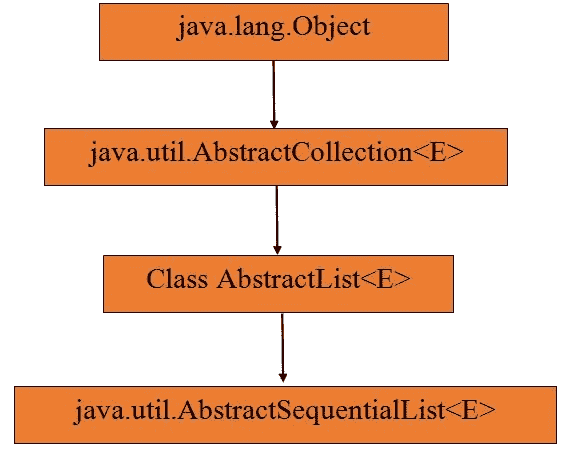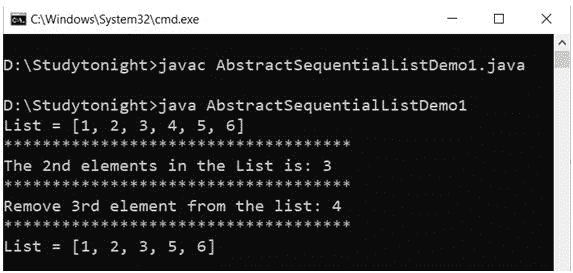Java AbstractSequentialList
原文:https://www.studytonight.com/java/abstract-sequential-list.php
在 Java 中,抽象序列列表类是 Java 集合框架的一部分。AbstractSequentialList由集合接口和抽象集合类实现。当列表无法修改时使用。为了实现这个AbstractList类,使用了 get() 和 size() 方法。
下面是类层次结构

语法:
public abstract class AbstractSequentialList<E>extends AbstractList<E>
下面是抽象序列列表类的方法
| 没有。 | 方法 | 描述 | | one | 加法(整数索引,E 元素) | 它用于在列表的指定位置添加元素。 | | Two | 整数索引,集合 c | 它用于在列表的指定位置的指定集合中添加元素。 | | three | get(int 索引) | 它用于从列表中的指定位置获取元素。 | | four | 迭代器() | 它返回列表中的所有元素。使用迭代器。 | | five | 列表迭代器() | 它用于以适当的顺序获取迭代列表。 | | six | 移除(整数索引) | 它用于从列表中移除指定的元素。 | | seven | 集合(整数索引,E 元素) | 它用于替换指定元素中的元素。 |
示例:
import java.util.*;
public class AbstractSequentialListDemo1 {
public static void main(String[] args)
{
AbstractSequentialList<Integer> a = new LinkedList<>();
a.add(1);
a.add(2);
a.add(3);
a.add(4);
a.add(5);
a.add(6);
System.out.println("List = "+a);
System.out.println("************************************");
System.out.println("The 2nd elements in the List is: "+ a.get(2));
System.out.println("************************************");
System.out.println("Remove 3rd element from the list: "+a.remove(3));
System.out.println("************************************");
System.out.println("List = "+a);
}
}
